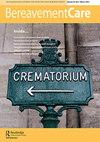The need for bereavement support following perinatal loss
Q3 Nursing
引用次数: 6
Abstract
‘Perinatal loss is physically, emotionally, spiritually, and mentally taxing on parents and families. The grief that parents experience following the loss of a child is difficult to overcome and may never be fully resolved’ (LeDuff, Bradshaw, & Blake, 2017, p. 352). The theme I have chosen to review for this research round-up is the need for bereavement support for women and families following perinatal loss specifically, here, support from healthcare professionals. By the mid-1980s hospitals began to recognise and respond to perinatal loss in ways that acknowledged women’s grief through practices to help assuage that grief and make meaning of their experiences (Davidson, 2011, 2008). Key to these practices are the interactions and supports provided by healthcare professionals, especially those with the closest contact to women during and just after their loss (Davidson 2011, 2008; Säflund, Sjögren, & Wredling, 2004). However, as will be seen later in this review, monitoring women’s well-being and extending support to subsequent pregnancies is also important. Across the relevant literature, terms used to describe loss during or shortly after pregnancy vary by, for example, jurisdiction, weight, or gestational term. In my own work, and for our purposes as related to the articles for this review, I use the term ‘perinatal loss’ to include: loss of a baby/fetus at any stage of gestation where the loss occurs in hospital or can be supported by healthcare professionals; this includes babies miscarried or born prematurely, born still, or a baby who dies within 28 days after a live birth (a commonly understood as the ‘neonatal period’). I used Google Scholar to begin my search for relevant articles published in 2017. My choice of four articles from four different journals, written by researchers from different scholarly perspectives (psychology, sociology and social work, nursing, occupational therapy) was intentional. I begin this review with ‘The presence and predictors of complicated grief symptoms in perinatally bereaved mothers from a bereavement support organization’ (McSpedden, et al., 2017, pp. 112-117) written by psychologists and published in Death Studies. These authors note that while most mothers do not experience ‘complicated grief’, monitoring and providing supports to bereaved mothers is important to their health. Note here that the next three articles I have chosen for this review follow the theme of perinatal loss requiring more professional and social recognition and support, including opportunities for memory-making.围产期丧亲后对丧亲支持的需求
“围产期损失对父母和家庭来说是身体、情感、精神和精神上的负担。父母在失去孩子后所经历的悲伤很难克服,可能永远无法完全解决”(LeDuff,Bradshaw,&Blake,2017,第352页)。我选择为本次研究综述回顾的主题是,在围产期损失后,需要为妇女和家庭提供丧亲支持,特别是医疗保健专业人员的支持。到20世纪80年代中期,医院开始以承认女性悲伤的方式认识和应对围产期损失,通过帮助缓解悲伤并使她们的经历变得有意义(Davidson,20112008)。这些做法的关键是医疗保健专业人员提供的互动和支持,尤其是那些在女性去世期间和去世后与她们接触最密切的人(Davidson 20112008;Säflund,Sjögren,&Wredling,2004年)。然而,正如稍后将在本次审查中看到的那样,监测妇女的福祉并为后续怀孕提供支持也很重要。在相关文献中,用于描述妊娠期间或妊娠后不久体重减轻的术语因管辖权、体重或妊娠期而异。在我自己的工作中,为了我们与本综述文章相关的目的,我使用“围产期损失”一词包括:在妊娠的任何阶段,婴儿/胎儿的损失发生在医院或可以得到医疗专业人员的支持;这包括流产或早产、胎死腹中的婴儿,或活产后28天内死亡的婴儿(通常被理解为“新生儿期”)。我使用谷歌学者开始搜索2017年发表的相关文章。我从四种不同的期刊上选择了四篇文章,这些文章是由不同学术角度(心理学、社会学和社会工作、护理、职业治疗)的研究人员撰写的。我以心理学家撰写并发表在《死亡研究》上的“丧亲支持组织中围产期丧亲母亲复杂悲伤症状的存在和预测因素”(McSpedden等人,2017,112-117页)开始这篇综述。这些作者指出,虽然大多数母亲没有经历“复杂的悲伤”,但监测和为失去亲人的母亲提供支持对她们的健康很重要。请注意,我为这篇综述选择的接下来三篇文章的主题是围产期损失,需要更多的专业和社会认可和支持,包括创造记忆的机会。
本文章由计算机程序翻译,如有差异,请以英文原文为准。
求助全文
约1分钟内获得全文
求助全文

 求助内容:
求助内容: 应助结果提醒方式:
应助结果提醒方式:


